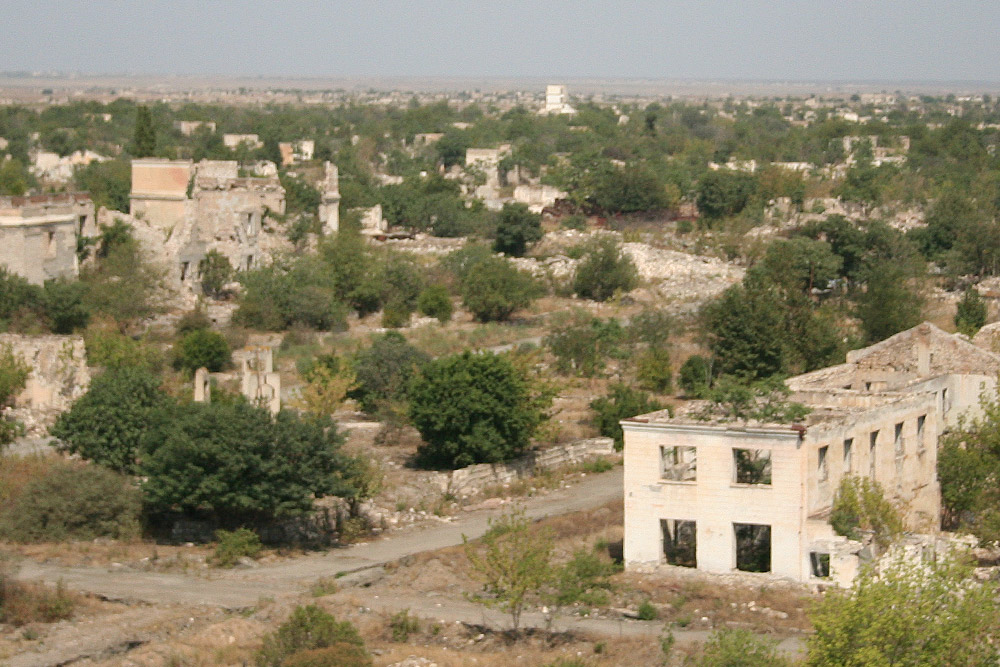Expansion of Kasprzyk Office to positively affect situation in Karabakh region

By Rashid Shirinov
The expansion of the Office of Andrzej Kasprzyk, the Personal Representative of the OSCE Chairperson-in-Office, as well as the increase in the number of observers monitoring ceasefire, is a timely step that can positively affect the situation in the region.
Moldovan independent political scientist Marcu Russnak made the remarks in an interview with Day.Az on February 2.
The expansion of the Office was discussed at the last meeting of the Azerbaijani and Armenian foreign ministers and the OSCE Minsk Group co-chairs in Krakow. The FMs agreed in principle to the co-chairs’ revised concept paper for implementing the expansion with a view toward finalizing it as soon as possible.
Russnak noted that such an opportunity can contribute to more effective work of international mediators.
“At the same time, this fact confirms the increased interest of the co-chairing countries in the negotiations and processes taking place in the region,” the expert mentioned.
As for the overall activity of the OSCE Minsk Group, Russnak called it passive, since the international structure has not yet developed the necessary mechanisms for resolving this long-standing conflict.
“In my opinion, the co-chairs do not make sufficient efforts to bring to the agenda the discussion of the Madrid principles, which have no alternative for settling this problem,” the expert said.
The principles stipulate a gradual settlement of the Armenia-Azerbaijan conflict. In particular, they envisage the withdrawal of Armenian troops from the occupied areas adjacent to the Nagorno-Karabakh region of Azerbaijan, provision of an interim status for the region and future determination of its final legal status. Moreover, all internally displaced persons and refugees, who account for more than a million of Azerbaijan’s population, must return to their former places of residence according to the Madrid principles.
Russnak noted that this document suggests an objective approach to resolving the multi-year problem.
The expert also expressed his opinion on the upcoming visit of the OSCE Minsk Group co-chairs to the region in the first decade of February. Russnak said that the co-chairs must coordinate their capabilities and efforts more closely in order to prepare a sound basis for the negotiations of the heads of the conflicting states.
“The negotiations of the sides can be successful if Armenia does not try to evade substantive negotiations with Azerbaijan once again,” the expert mentioned.
The Nagorno-Karabakh conflict began in 1988 when Armenia made territorial claims against Azerbaijan. As a result of the ensuing war, in 1992 Armenian armed forces occupied 20 percent of Azerbaijan, including the Nagorno-Karabakh region and seven surrounding regions. More than 20,000 Azerbaijanis were killed and over 1 million were displaced as a result of the large-scale hostilities. The 1994 ceasefire agreement was followed by peace negotiations.
Until now, Armenia controls fifth part of Azerbaijan’s territory and rejects implementing four UN Security Council resolutions on withdrawal of its armed forces from Nagorno-Karabakh and surrounding regions.
Baku has repeatedly expressed its consent to come to the negotiating table with Yerevan to resolve the conflict by peaceful means, but Armenia continues to play for time and avoids substantive negotiations in order to preserve the inadmissible status quo in Nagorno-Karabakh.
---
Rashid Shirinov is AzerNews’ staff journalist, follow him on Twitter: @RashidShirinov
Follow us on Twitter @AzerNewsAz
Here we are to serve you with news right now. It does not cost much, but worth your attention.
Choose to support open, independent, quality journalism and subscribe on a monthly basis.
By subscribing to our online newspaper, you can have full digital access to all news, analysis, and much more.
You can also follow AzerNEWS on Twitter @AzerNewsAz or Facebook @AzerNewsNewspaper
Thank you!
